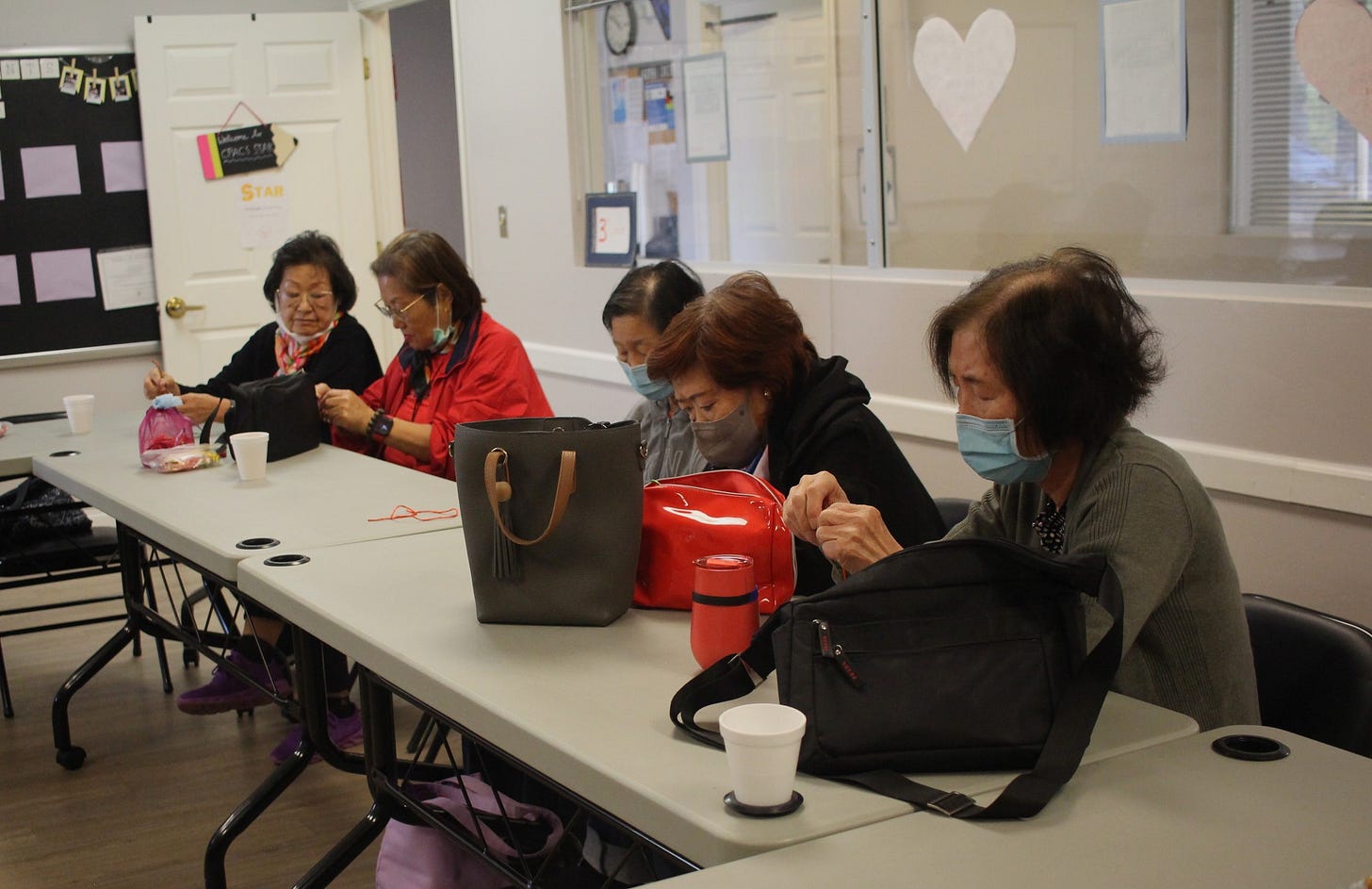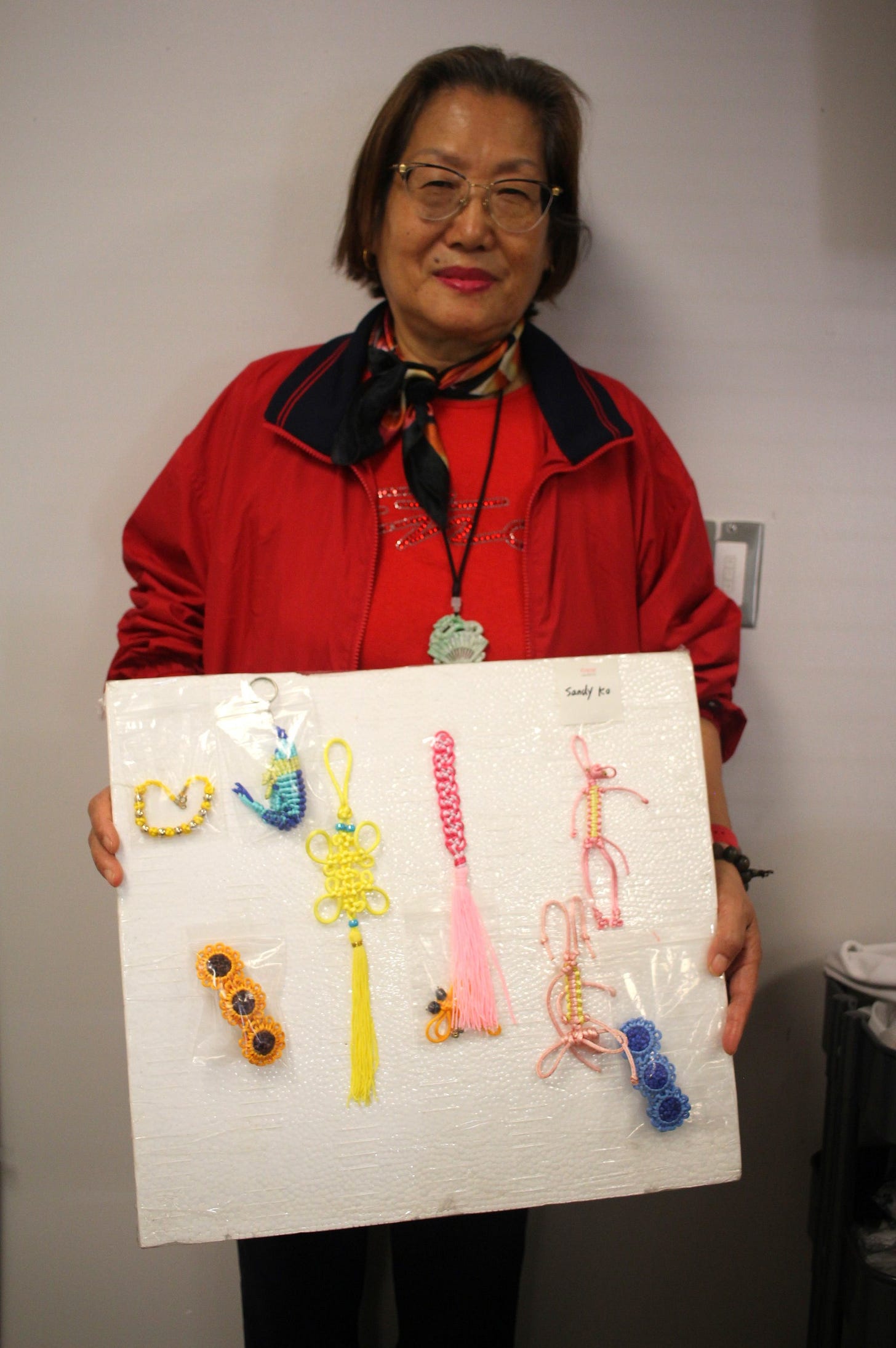Asian seniors look for a new "home" after community organization cuts programs
Seniors spoke to 285 South, saying they are “devastated,” “sad,” and “disappointed”

More than two dozen Chinese seniors gathered in different rooms of the ground floor of an office building off Shallowford Road in Chamblee last Thursday—part of a twice weekly ritual that has been going on for years.
Some were playing mahjong, an ancient Chinese game played with small green and white blocks; others were tying strings together—a craft called zhongguo jie, or Chinese knotting; and in the back room, many were either practicing calligraphy or painting with watercolors.
Hundreds of seniors used to partake in the activities at the Center for Pan Asian Community Services (CPACS) office every week. But these days, there are a lot less people, and in less than three months, they’ll no longer have this space to gather.
That’s because CPACS, founded in 1980, and one of the oldest immigrant-serving community organizations in the Southeast, cut its programming for seniors in late February, after a loss of funding, according to current and former staff. CPACS was the only immigrant nonprofit in the Metro Atlanta area funded through the Atlanta Regional Commission to directly serve Asian immigrant seniors.
“They don’t have anywhere to go,” says Anna Tam, a former CPACS staff member who used to work in the social services department and support the senior program. She says around 500 Chinese, Nepali, Korean, and Burmese seniors used to come through the every week, where they would participate in activities like Tai Chi and Korean drumming classes.

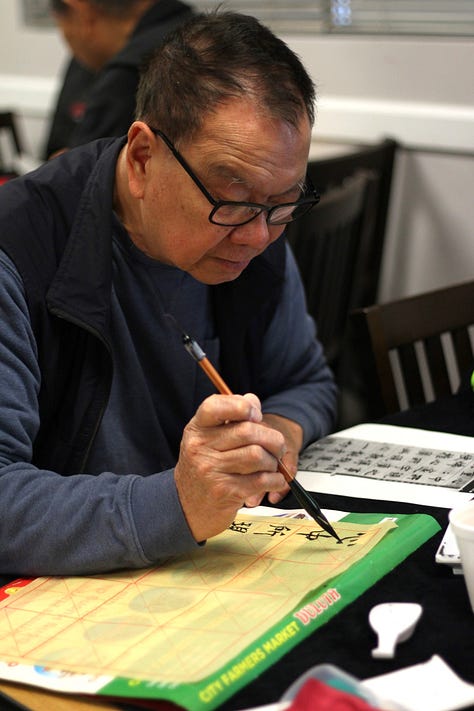
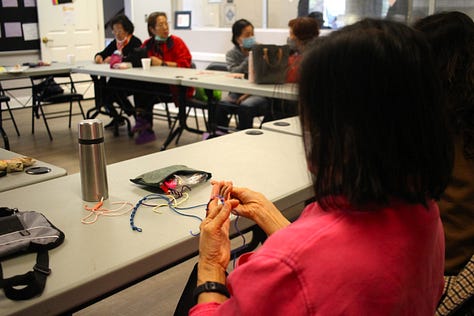



Knowing how essential the programs—ie the socializing—was for seniors, Tam worked out an arrangement with CPACS after she lost her job: The organization would no longer be able to provide meals or transportation, but seniors could continue to gather at the office, twice a week, until June. After that, it would be up to Tam to find a new space for seniors to come together.
Tam continues to show up at the office, supporting the Chinese seniors who are able to drive themselves or get a ride. But she’s not sure what happened to the others. “I believe some Koreans went to the church…for other groups like Burmese and Nepali, they need transportation. Because the transportation was cut, they cannot come.”
The cutting of the programs comes after allegations of fraud and mismanagement of funds led to a state investigation into CPACS’s Board and senior leadership last year. Since then, staff has been reduced due to a loss of grant money, said Stephen Lee, the interim CEO of the organization, in an interview with 285 South in March. At least seven out of eight staff from the senior programs, says Tam, were laid off.
Hsiu Hsia started attending the senior programs a few years ago with her husband, Shu, before he died. “They were like two peas in a pod…they both enjoy[ed] this a lot,” says her daughter, Ching, who was interpreting for her mom in Chinese. The couple had opened the Yen Jing Chinese restaurant on Buford Highway in 1991 (the restaurant closed this past summer). “After he was gone, my mom lost a part of herself.”
At first Ching’s mom didn’t want to leave the house, let alone join the senior programs, because they reminded her of Shu. But Ching knew it was important for her mom to socialize, and was intent on driving her from Lawrenceville to the CPACS office in Chamblee twice a week even though it's a trek for them (“around 35 minutes on I-85, that’s with no traffic”). “I really push[ed] her…. this program helps bring her up…to have something to do and look forward to, instead of sitting home and just thinking about my dad,” said Ching.
“I’m old. This is where I come to socialize with other elderlies to see my friends so that I won't be lonely at home and stay home by myself,” says Hsiu, sitting in the after school program room where half a dozen women were quietly tying brightly colored cords together in knots. She says the crafts they do, like the knotting, also help prevent dementia.
If Hsiu didn’t have the program to look forward to every week, she says she would feel “devastated” and “homeless.” “This is part of her home,” explains Ching. “When she heard the program was ending, it was like oh, now where am I going to go?”
One woman, who was knotting alongside the others, says she moved from Chattanooga to Atlanta in 2014. When she first got here, she says she had no friends. She gradually started to meet people after getting involved with the senior programs. When she heard it was going away, she says she was “very disappointed.” “The program is important for the health. Not only physical health, inner health. We feel love, we feel friendship.”
There are other community centers for seniors in their respective counties, says Tam, but many people in the community don’t feel comfortable going because of either language or cultural barriers. “The activities are more American. And the food is different. That’s why CPACS started this senior program. We do it by ethnicity. So Chinese we provide Chinese food, Koreans we provide Korean food, so different kinds of foods. But the county seniors, it's always American food.”
In 2020, the Atlanta Regional Commission announced $13 million in funding to “support aging and independence in Metro Atlanta.” The funds would be distributed among 14 different counties and organizations over the course of four years. Nine of the grantees were county commissions. CPACS was the only senior immigrant-serving organization to receive money.
The Atlanta Regional Commission and the Center for Pan Asian Community Services had not responded to requests for comment on the future of funding for the programs by the time of publication of this article.
Most of the seniors don’t know exactly what happened at CPACS over the last year, says Ching. “[They] just know that whatever's going on internally within the leadership, they're the one that's being affected by it.”
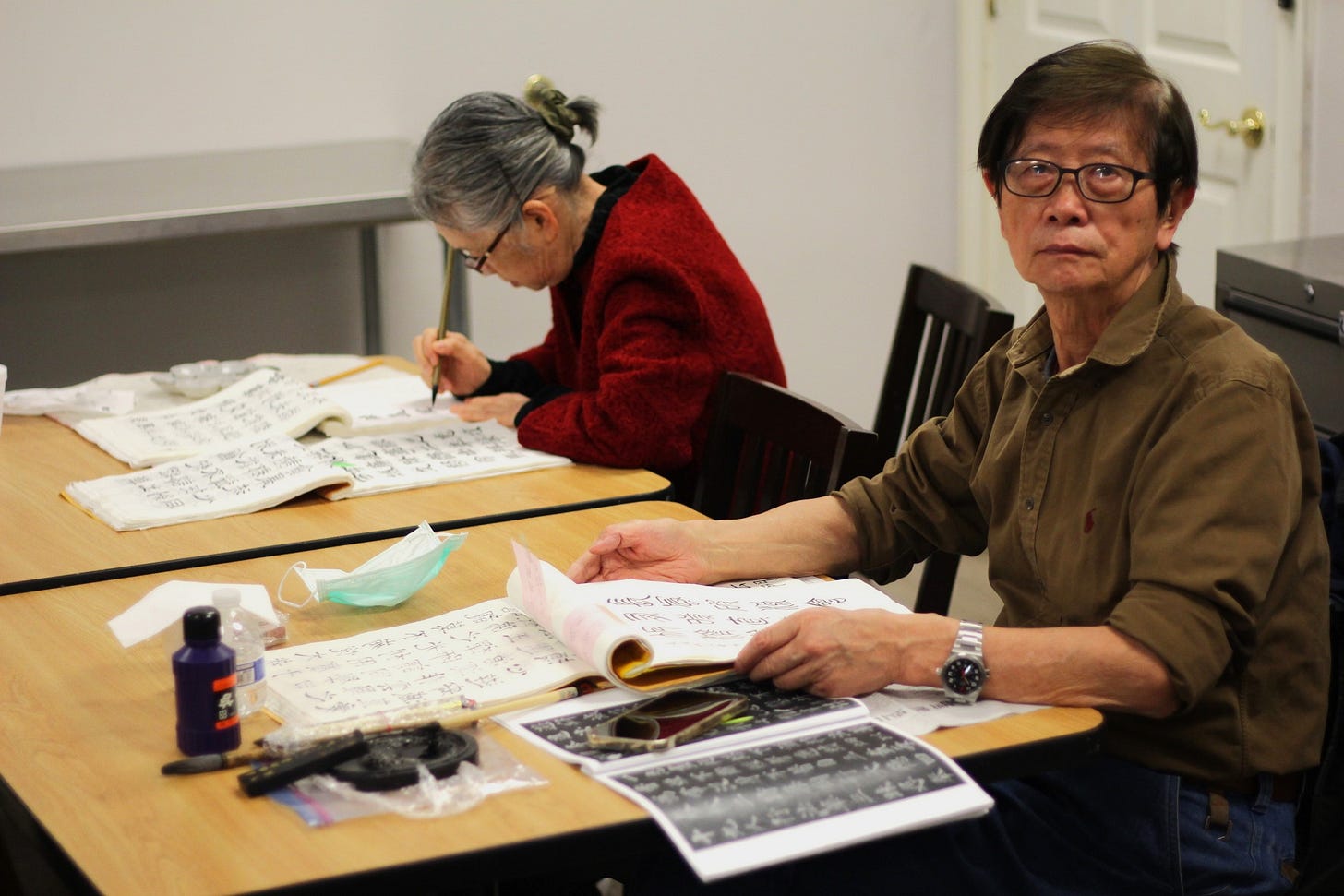
By June, Tam is hoping she will have raised enough money through the Chinese Community Federation of Atlanta, where she also volunteers, and will have found a new, affordable space for the seniors, ideally in the same area. “Quite a bit of seniors are from Duluth or Sugarloaf and some are from Cobb County, and then some of them live around this area. So this area will be convenient for everybody,” she said.
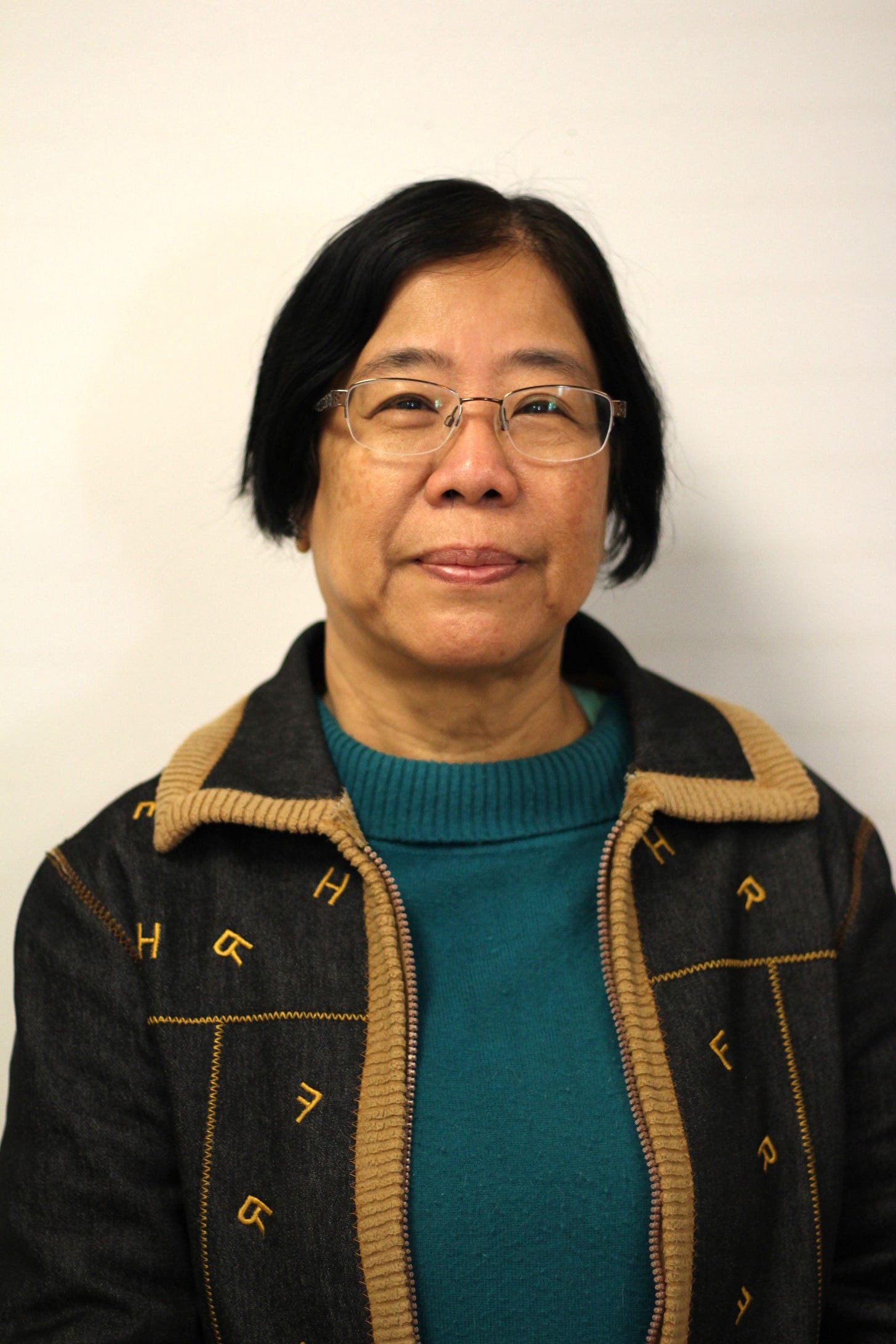
Hsiu doesn’t even want to even think about the possibility of not having the senior programs to look forward to every week. She’s banking on Tam to sort everything out.
So is her daughter Ching, who is doing whatever she can to make sure her mom’s life is full of happy moments. She regrets that her dad didn’t have more fun in his last years. “He’d been working hard all his life and toward the end of his life, I tried my best…to take him everywhere to travel and give him the best time. But I feel like he still didn't enjoy as much because he'd been working a lot.”
She wants things to be different for her mom. “I want her to be healthy and happy, that's my biggest wish.”






